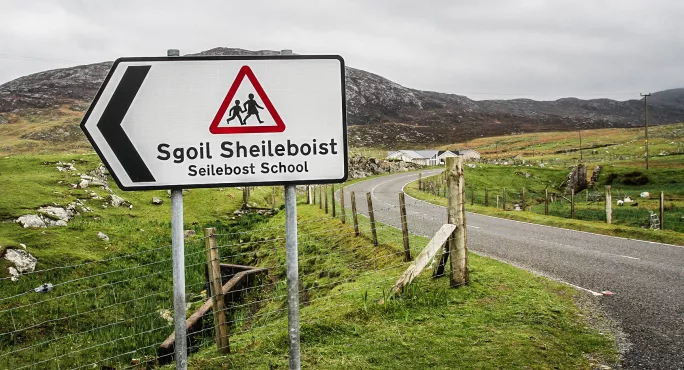A proposed new law that would give parents the right to request Gaelic-medium nursery education will not - on its own - make “any meaningful difference” to the protection of Scotland’s “indigenous languages”, a Holyrood committee has concluded.
A report published today acknowledges “the symbolic value of according [Gaelic and Scots] with official status”.
However, it says the Scottish government must go further “if it is to meet its aims to effectively support these languages and dialects and if the bill is to make any meaningful difference rather than simply being symbolic”.
The comments come in the new report from the Scottish Parliament’s Education, Children and Young People Committee, published after it scrutinised measures in the Scottish Languages Bill that would also place a new duty on Scottish ministers to “promote, facilitate and support” Gaelic education.
Gaelic language ‘in perilous state’
The report states: “The committee believes that there are significant issues that need to be addressed to support Gaelic, which is in a perilous state. The committee believes that more needs to be done to urgently support speakers, to ensure that the language thrives as a community language.”
Campaigners for Gaelic have criticised the bill for failing to confer a legal right to Gaelic-medium education (GME).
Parents have the right to request primary GME but “numerous submissions” in the report highlighted that the process is “cumbersome and requires simplification”.
Under the current system, parents must find five children in the same year group who want to receive GME in order to trigger a full assessment.
However, councils say that without “concerted action” from the Scottish government and partners - particularly in relation to teacher numbers - “any expansion [of Gaelic education] would not be deliverable”.
‘The stick of an enforceable right’
Wilson McLeod, emeritus professor of Gaelic at the University of Edinburgh, argued in a written submission to the committee that “the ‘stick’ of an enforceable right could serve to focus minds”.
Education committee convener Sue Webber said: “We have serious concerns about the future of Gaelic.
“On its own, we believe the Scottish Languages Bill does not address the challenges facing the Gaelic language or provide the necessary support to either Gaelic or Scots.
“While our committee has recommended that the Parliament backs the general principles of the bill, the Scottish government must do more to avoid it being purely symbolic.”
A Scottish government spokesperson said it was “working to create a more secure future for Gaelic through a range of measures across broadcasting, education and the arts”.
The spokesperson added: “The Scottish Languages Bill will make Gaelic an official language of Scotland and introduce standards for teaching Gaelic in schools, supported by almost £30 million of Scottish government funding over the course of the current financial year.”
For the latest Scottish education news, analysis and features delivered directly to your inbox, sign up to Tes magazine’s The Week in Scotland newsletter




